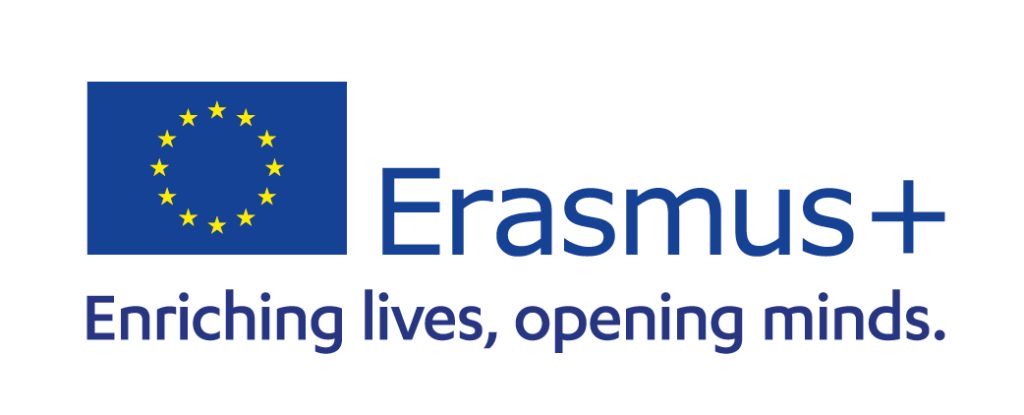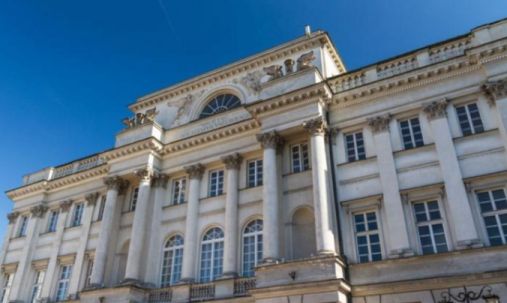
Please contact us at jfells@gssr.edu.pl
GSSR fully supports the Erasmus Without Paper initiative and will follow the timetable for implementation of the European Student Card initiative.
Erasmus Charter for Higher Education 2021-27
 Erasmus Student Charter
[PDF, 554.48 KB ]
Erasmus Student Charter
[PDF, 554.48 KB ]

Policy statement
The Institute of Philosophy and Sociology of the Polish Academy of Sciences and its Graduate School for Social Research.
The Graduate School for Social Research (GSSR) is based within the Institute of Philosophy and Sociology, a leading research institute of the Polish Academy of Sciences. The School encourages an interdisciplinary approach within the social sciences, with a range of doctoral research not limited to investigations in philosophy and sociology, however broadly understood, but also encompassing for example, historical, anthropological and literary studies along with themes from political science and political economy. The GSSR is also part of a doctoral school founded in 2019 with its partner institutes in the Polish Academy of Sciences: the Institute of Psychology and the Institute of Political Studies. Visiting students have access thereby to additional courses in psychology and political studies.
Although very small, the GSSR has an international graduate student body recruited from throughout the world. Its lecturers are also recruited from both within and outside Poland. Whilst many of our students are from the countries of the former Soviet Union and Eastern Europe, and increasingly from Africa and Asia, our recurring visiting lecturers are predominantly from ‘the West’. Students should not be surprised that comparative study of different societies both within and between regions is strongly encouraged.
Second cycle students accumulate credits by completion of course modules at the school whilst doctoral students after initial completion of 4 compulsory modules are encouraged to take optional courses within the GSSR, or offered within the doctoral school or at other institutions in Poland and elsewhere).
Modules are taught in English: all programmes can be completed by non-Polish speakers. Specialised doctoral seminars are sometimes given in other major languages such as French, as appropriate to the subject matter.
Doctoral students are encouraged to take part with academic staff in other research projects beside their own thesis work in order to gain, skills, contacts and experience. Mobility (within Erasmus plus, but also other schemes) enhances the effect and widens the horizons of participants. Many doctoral students have academic co- supervisors attached to institutions other than the Graduate School.
The establishment of the GSSR within a research institute is intended to integrate higher education and research, as are the research institute’s bilateral student internship agreements with other institutions be the universities or bodies such as the Max-Planck Gesellschaft. Thorough research training in a social science institution provides sophisticated skills in particular relevant to work involving social surveys – the research institute and its graduate school provide services to and recruits to this branch of industry, making the knowledge triangle work, with higher education, research and business linked for excellence and regional development.
Participation in Erasmus
The Institute abides by all provisions of the ECHE. Participation in Erasmus activities takes place on the basis of open competition according to procedure published on the School website.
Incoming graduate students are welcome to take courses at second and third cycle levels at the GSSR. Mobility between partners established in inter- institutional agreements is on the basis of learning agreements using standard official templates, wherever possible in electronic form. Implementation of the agreements is monitored by the Academic Director. Transcripts showing grades achieved and workload (credits) are required for all student mobility flows. Recognition of workload/credits gained by students during outgoing mobility is automatic. The standard appeal procedure for end of year student evaluations is available for questions arising about recognition. Transcripts on completion of incoming mobility are provided within a month after the end of relevant teaching period /semester.
A full list of courses (with syllabuses) is available on the graduate school website with grading criteria available in the relevant handbook on the site (see). Links to the website are provided in inter-institutional agreements)
Exchanges of teaching staff are also encouraged, again between partners established by inter-institutional agreements. Mobility takes place on the basis of teaching agreements using standard official templates, wherever possible in electronic form (Cf Erasmus Without Paper initiative).
The School’s choice of institutional partners for student mobility and other joint activities tends to reflect the interests of individual doctoral students or groups of students attending a thematic seminar. Host institutions chosen are those with complementary research and teaching interests. Students are particularly encouraged to suggest new institutional partners best suited to their academic interests. ‘
While doctoral students form our main target group for inward mobility, inward mobility of Master’s degree students is also welcomed.
Mobility with programme countries in particular supports the research of individual doctoral students. The number of institutional partners is increasing but we accept that sustained reciprocal mobility is unlikely even within the two disciplines of the Institute’s remit. The choice of hosts for outgoing student mobility almost exclusively to corresponds to the research interests of individual doctoral students in a given year and so are unlikely to be repeated in subsequent years. Much the same is true for incoming mobility. The situation however does bear fruit in the form of establishment of cotutelle arrangements and such arrangements are welcomed.
Interest in mobility with non-programme countries is part of a developing alumni network strategy. Prospective partners are sought among international alumni now teaching in their home countries.
Teaching at the School is provided largely by visiting faculty from outside Poland. The School’s strategy here is to open recruitment as widely as possible and hence inward mobility from beyond Poland is strongly encouraged. At the same time outward mobility by the Institute’s own staff should function as a calling card to promote our institution and to develop cooperation in the form of eg international Summer Schools in Poland (low cost of living and natural beauty make it attractive for this purpose).
New teaching activities are being designed with online distance learning provision. The effects of virtual contact are however much enhanced by real meetings. Participation by staff in individual mobility flows in summer schools strengthen the quality of such provision and enhance cross-border cooperation.
The school’s non-doctoral programmes are timetabled with all meetings outside working hours to allow students to both work and study thereby broadening access to graduate study and providing those who successfully complete the programme with the skills to enable them to go on to doctoral and in some cases further research, or to continue in their chosen profession with greater theoretical insight. Inward mobility within the framework of Erasmus, offers a more international experience to those home students whose work and family commitments make outward mobility a less practical option.
While the school’s cooperation with a leading UK university helps to ensure that the School keeps abreast of best practice, student mobility also has an important role to play. Students returning from mobility with their diverse experiences help to maintain the momentum for continuous improvement of the quality and relevance of the HE provision. In addition mobility helps them to form necessary international contacts for future work in research projects or professional careers.
Participation in KA2 activities is also directed toward promotion of best practice.
By supporting the School’s efforts at internationalization, participation in Erasmus also contributes to improved governance by exposing academic staff and students to alternative management and funding solutions and so promotes adoption of best practice. However, the GSSR has an extremely small administrative staff. Whilst their participation in mobility is not in any way discouraged, workload makes frequent or long absences impractical, and benefits accruing from mobility have to be weighed carefully.


